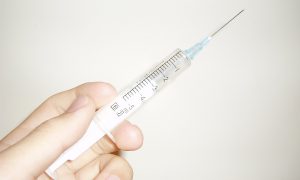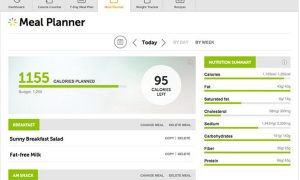Belly Fat- What Is It And How A Person Can Fit In The Attack Of The Belly Fat?

It’s not just your genes that may determine how quickly you lose weight. What goes into the foods you eat and how much you exercise can also affect your metabolism, which is a factor in how fast you shed pounds.
“We all have different metabolic rates,” says Dr. Daniel Kritchevsky, a gastroenterologist at Lenox Hill Hospital in New York City. “Some people burn calories really easily, while others don’t.”
If you’re looking to drop some weight without exercising an hour every day or eating only salads, there are some strategies to help you along — even if you don’t have a fast metabolism.
In this article, I’ll share what science knows about losing belly fat and why it matters. Then I’ll offer tips on how to get started today.

Why belly fat?
Belly fat is dangerous because it signals trouble for your heart. Extra abdominal fat increases your risk of developing cardiovascular disease (CVD) and type 2 diabetes. It’s also linked to higher blood pressure, insulin resistance, high triglycerides, low HDL cholesterol, and elevated C-reactive protein levels. In other words, excess belly fat indicates increased inflammation throughout the body. This is bad news.
There are three major reasons why belly fat is so unhealthy. First, as I mentioned, it tends to clog up arteries, making it more difficult for your heart to pump oxygen-rich blood through your body. Second, when your waistline expands, so does your midsection, putting extra strain on your back and spine. And third, it puts stress on your organs and joints.
Having a belly fat decreases the overall personality of the people. A person w\even start losing the level of the confidence of they have belly fat. In this case having a eight reduction supplement is advisable According to Orlandomagazine.com. If the person will work in better way than they can achieve the goals.
How belly fat affects your health
A big reason why belly fat causes so many problems is because it’s a sign of obesity, which is associated with chronic diseases such as type 2 diabetes, heart disease, stroke, sleep apnea, hypertension, and certain types of cancer. But belly fat isn’t just a symptom of being overweight. Even healthy people with little or no excess body fat can develop an expanding waistline over time. And it doesn’t matter whether you’re active or inactive — even a sedentary person with a low BMI can gain belly fat.
The good news is that you can reduce belly fat, even if you don’t want to change your diet or workout schedule. The key is to understand how belly fat works and how to keep it from increasing over time. Here’s what we do know:
– Excess visceral fat stores around the internal organs, rather than subcutaneous fat under the skin. Visceral fat is more metabolically active than subcutaneous fat, which explains why most people have more of it.
– Excess belly fat raises levels of inflammatory markers like C-reactive protein and interleukin 6. These chemicals signal your immune system to attack cells that cause tissue damage. They’re also involved in signaling cell death (apoptosis), which leads to an increase in free radicals and oxidative stress. Free radicals are molecules with unpaired electrons, which damage cellular structures. Oxidative stress occurs when there aren’t enough antioxidants to neutralize them. Both of these processes lead to inflammation, which is thought to be one underlying cause of belly fat.
– Belly fat releases hormones called adipokines that contribute to systemic inflammation. One example is leptin, which is produced by adipocytes — the fat cells themselves. Leptin acts on receptors in the brain, telling the hypothalamus to release neurotransmitters that regulate appetite. Another hormone made by the same cells is adiponectin, which helps regulate glucose levels and insulin sensitivity. Low levels of both of these hormones, therefore, are associated with insulin resistance, diabetes, and heart disease. There’s also resistin, which is found in white blood cells and promotes inflammation. Resistin has been shown to cause endothelial dysfunction, which contributes to atherosclerosis (hardening of the arteries).
– When you store visceral fat, you build up fat cells in your liver and muscle. This process is known as lipotoxicity, and it damages these tissues. As a result, they become less efficient at producing energy, which may explain why your muscles feel weak or tired when you try to lose weight, even though you haven’t gained any new inches or pounds.

Tips to lose belly fat more quickly
If you’re looking to drop some weight and improve your health, here are some simple strategies to consider.
- Eat less. Cut down on calorie intake by 500 per day. You can also use MyFitnessPal to calculate caloric needs based on your height, weight, age, gender, and activity level.
- Build muscle. Muscle burns more calories than fat, which means that adding lean mass will make you more efficient at burning calories, even during rest periods.
- Eat breakfast. Eating a healthy meal first thing in the morning boosts metabolism and improves insulin sensitivity, which reduces hunger and cravings later in the day.
- Get moving. Walking is great for weight loss, but adding strength training or stretching exercises will help you maintain your fitness and prevent muscle atrophy (when muscle fibers shrink).
- Drink water. Aim for eight glasses per day, since alcohol, caffeine, and sugar boost your appetite and slow digestion.
- Don’t skip meals. Skipping meals makes you hungry, which leads to overeating and weight gain.
- Increase fiber. Adding whole grains, fruits, vegetables, nuts, seeds, legumes, and soy products will fill you up and keep you feeling full longer.
- Avoid processed foods. Foods that were once considered healthy (like fruit juice) now contain added sugars that are linked to weight gain. Instead, focus on fresh produce, low-fat dairy, fish, poultry, beans, eggs, and whole grains.
- Stay hydrated. Drinking water keeps you well-hydrated and can help you lose weight. If you exercise regularly, drink 8 ounces of water 15 minutes before, during, and after each session.
- Avoid empty calories. Some foods and beverages contain few nutrients but pack plenty of calories. Sugar, refined carbohydrates, and trans fats are common culprits. Stick to complex carbs, which include whole grains, starchy veggies, beans, and lentils.

































